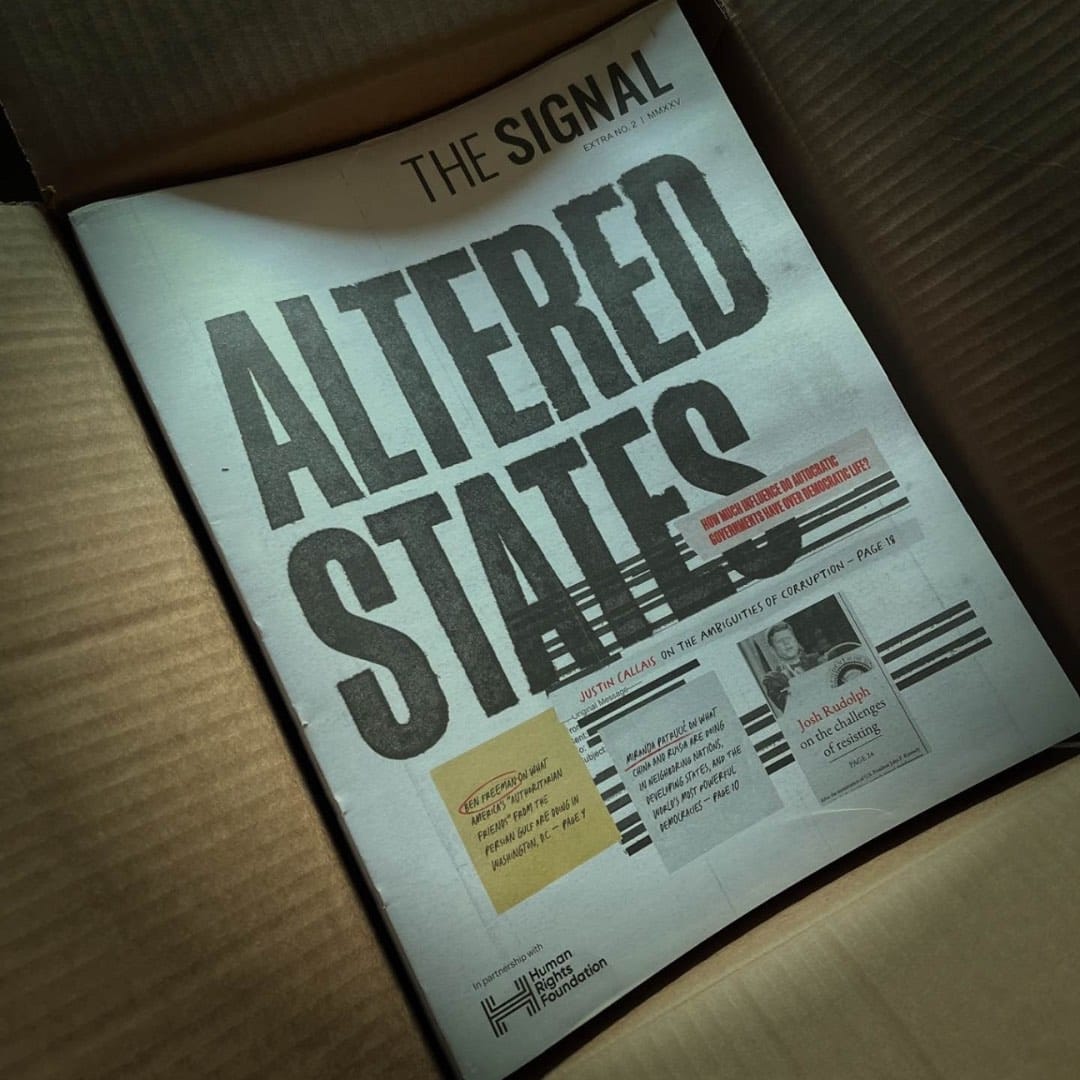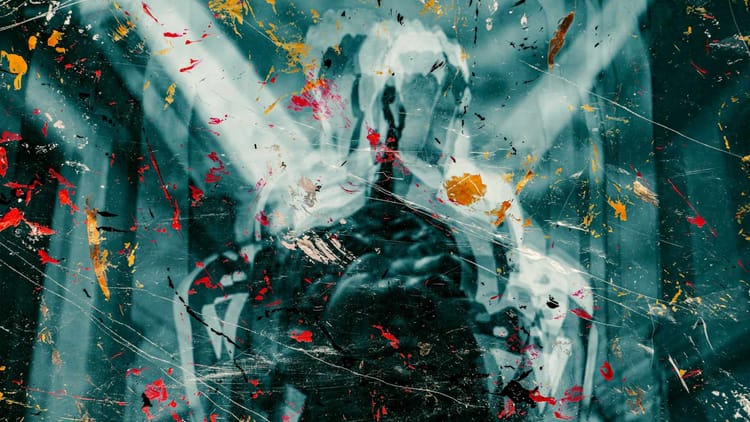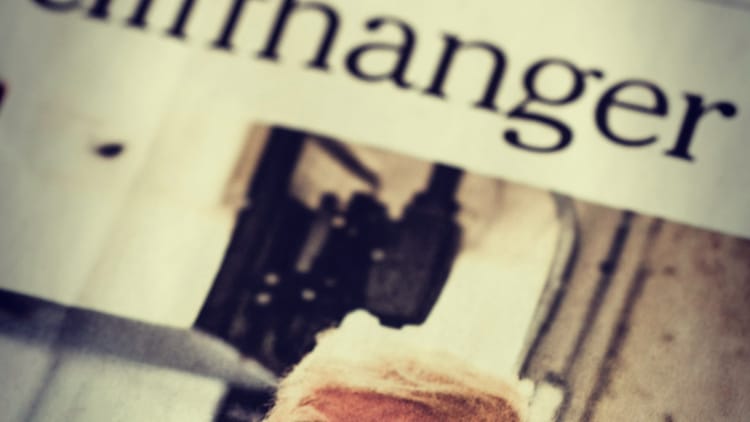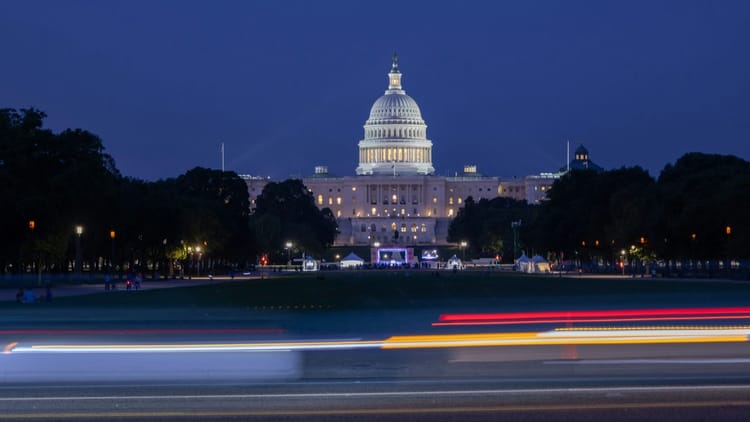Who controls the past …

Recently: What’s driving political attacks against central banks around the world? Stefan Eich on an emerging legitimacy crisis.
Today: U.S. Republicans open a new January 6 investigation through parliamentary sleight of hand. Trump accuses Xi, Putin, and Kim of conspiring against America. Putin meanwhile invites Zelensky to Moscow—on Russia’s terms. Florida drops vaccine mandates in effect for decades across the United States. & The U.S. military strikes a Venezuelan drug boat—and expands presidential war powers.
+ Brendan Hasenstab on the past and present of Afrobeat.
& New music from Mádé Kuti ...
Relitigating January 6
U.S. House Republicans voted Wednesday to authorize a select subcommittee to investigate the January 6, 2021, Capitol attack—and potentially the previous Democratic-run January 6 committee—with a 212-208 party-line vote after lawmakers slipped the resolution into a House floor rule.
House Speaker Mike Johnson said the new panel would “uncover the full truth that is owed to the American people” and expose “false narratives peddled by the politically motivated January 6 Select Committee”—though he provided no specifics about alleged falsehoods.
The move transforms a concluded investigation into contested institutional memory, testing the extent to which the Republican-controlled Congress can use procedural maneuvering to override established institutional findings that implicated U.S. President Donald Trump in a significant democratic breakdown.
Conspiracy in Beijing
China’s President Xi Jinping, Russia’s President Vladimir Putin, and North Korea’s Supreme Leader Kim Jong Un appeared together publicly for the first time at a Beijing military parade commemorating Japan’s World War II surrender, prompting the Trump to post on social media: “Please give my warmest regards to Vladimir Putin, and Kim Jong Un, as you conspire against The United States of America.”
With the parade—a massive display—featuring hypersonic weapons, nuclear-capable missiles, and more than 50,000 attendees, Trump underscored the United States’ sacrifices for China during the Second World War, writing, “Many Americans died in China’s quest for Victory and Glory.”
It’s a spectacular accusation, though whether it has more to do with strategic competition or personal grievance is unclear—as may be the question of how fully the American president is distinguishing between diplomatic theater and genuine threat.
- Oddly, a hot mic picked up Xi and Putin discussing organ transplants and immortality—overhearing Xi’s interpreter saying in Russian, “In the past, it used to be rare for someone to be older than 70, and these days they say that at 70 one’s still a child.”
- See “All the razzle-dazzle.”
Putin’s Moscow invitation
Putin, speaking from Beijing after the military parade, said he would meet Ukraine’s President Volodymyr Zelenskyy in Moscow if “Zelenskyy is ready,” but dismissed current talks as “a path to nowhere,” given what Putin described as Zelenskyy’s uncertain constitutional status as Ukraine’s president.
The Russian president claims Trump had asked about the possibility of such a meeting during their recent Alaska summit, while saying Ukraine’s combat-ready units are staffed at only 47-48 percent.
Putin’s conditional offer—requiring Zelenskyy to travel to Moscow—suggests how the Russians are approaching diplomacy as maneuvering for the tacit acknowledgment of dominance rather than a negotiation between equals.

Florida does away with vaccine mandates
Florida’s Surgeon General Joseph Ladapo announced Wednesday that his state will become the first in the U.S. to eliminate all vaccine mandates, comparing school vaccination requirements to “slavery” and declaring “every last one of them is wrong.”
Ladapo said the Florida Department of Health will immediately end mandates under its administrative control, while the legislature will address those written into state law. The announcement follows Governor Ron DeSantis’s own of a state-level “Make America Healthy Again” commission to align with Trump’s and Health Secretary Robert F. Kennedy Jr.’s “Make America Healthy Again” agenda.
Notably, this isn’t a reversal of any recent, post-Covid policy: The elimination of vaccination requirements Ladapo’s announced would make Florida the first state to abandon disease-prevention measures that have been standard public-health practice across the United States for decades now.
Caribbean drug strike
President Trump announced Tuesday that U.S. military forces conducted a “kinetic strike” against an alleged drug vessel in international waters operated by Tren de Aragua—a transnational criminal organization from Venezuela—killing 11 people.
Trump posted black-and-white aerial footage of the strike on social media, writing, “Please let this serve as notice to anybody even thinking about bringing drugs into the United States,” while Secretary of State Marco Rubio described it as part of ongoing U.S. “counter-drug missions”—saying “no one should be surprised” if similar operations follow.
This strike represents the first acknowledged U.S. military action specifically targeting a Latin American drug cartel under Trump’s new terrorist-organization designations, expanding presidential war powers into counter-narcotics operations previously handled by civilian agencies.
Our second limited-run print magazine, Altered States, runs down the question of the influence dictators have over democratic life in the world today.
This edition, produced in partnership with the Human Rights Foundation, features conversations—with Ben Freeman, Miranda Patrucić, Justin Callais, and Josh Rudolph—on how authoritarian states build political influence in the U.S., why dictators keep disrupting so many other countries, why autocratic corruption is such a problem for democratic life, and what democracies can do about it.
Currently available in the U.S.A. To register interest in ordering internationally, or with any questions, please be in touch: concierge@thesgnl.com.

‘You Can’t Hide’
Though not a household name in the United States, Europe, or most of the rest of the world, Mádé Kuti is Nigerian music royalty. His father is Femi Kuti, and his grandfather was Fela Kuti, a pioneer of the Afrobeat genre and the leader of Africa ’70 and Egypt ‘80, among other hugely successful African bands. Now, Mádé is breathing new life into the Afrobeat sound, with big horns and layered production, while playing multiple instruments, himself, including saxophone, trumpet, bass, and piano.
What is Afrobeat?
It’s a style developed principally by Fela Kuti in the 1960s and ‘70s, from a complex fusion of jazz, funk, and Ghanaian highlife—a genre itself blending traditional West African rhythms with jazz and swing influences—along with traditional Nigerian chants and rhythms. And yet one of the biggest influences on Afrobeat was the funk idiom of America’s James Brown. You can hear other influences, too—including Afro-Cuban music and late-‘60s psychedelic soul.
Something you won’t hear directly in Mádé’s songs is the political tone of so many of his grandfather’s records, like 1977’s Zombie, which took the Nigerian government to task for its corruption and rough-handed oppression. Or 1989’s Beasts of No Nation.
And something else that’s different: You’ll hear almost none of the Pidgin English in Mádé’s songs that Fela used to reach across Africa’s many language divides. Instead, it’s the standard English you’ll find in most contemporary Nigerian literature, despite enduring literary traditions in the Yoruba, Hausa, and Igbo languages.
Your loyal guide to a changing world.
Membership with The Signal means exclusive access to premium benefits:
- Regular profiles on the questions behind the headlines
- In-depth feature interviews with our network of specialist contributors from across America and around the world
- The despatch, our weekly current-affairs and cultural-intelligence briefing
- Early access to new products, including print extras
It also means vital support for an independent new enterprise in current-affairs journalism.
New music
‘Find My Way’
Though not a household name in the United States, Europe, or most of the rest of the world, Mádé Kuti is Nigerian music royalty. His father is Femi Kuti, and his grandfather was Fela Kuti, a pioneer of the Afrobeat genre and the leader of Africa ’70 and Egypt ‘80, among other hugely successful African bands. Now, Mádé is breathing new life into the Afrobeat sound, with big horns and layered production, while playing multiple instruments, himself, including saxophone, trumpet, bass, and piano.





